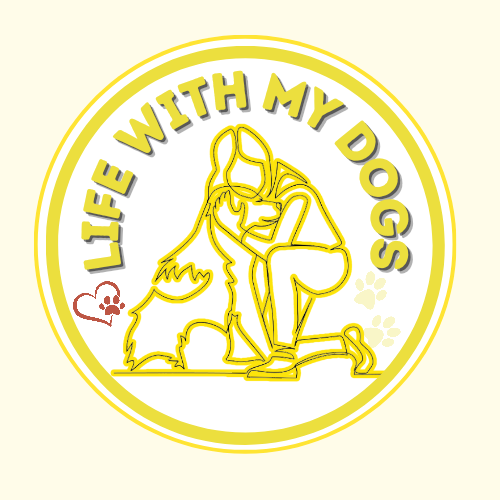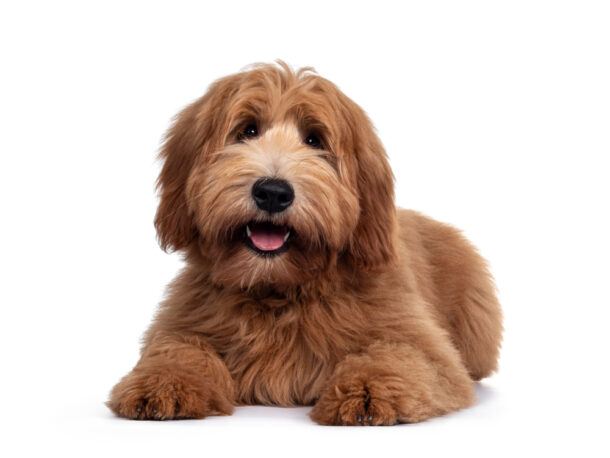LifeWithMyDogs is supported by our audience. When you purchase through one of our links, we may earn a small affiliate commission. As an Amazon Associate I earn from qualifying purchases. Your cost is not affected.
**********
Unveiling the Miniature Schnauzer Dog: A Lovable Companion is your key to unlocking the wonderful world of the miniature schnauzer dog as a pet. These charismatic and intelligent dogs have captured the hearts of countless families worldwide. In this comprehensive guide, we’ll embark on a journey to equip you with the knowledge and tools to provide the best care for your Miniature Schnauzer. From understanding their unique personality traits to their grooming needs and training tips, this article is your go-to resource for making your home the perfect haven for these delightful companions. Join us as we delve into miniature schnauzer mastery and prepare to welcome these furry friends into your life with open arms.
Miniature Schnauzer Dog Breed History
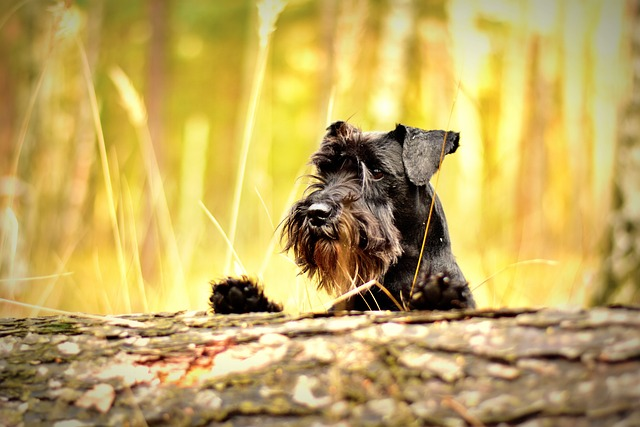
Let’s chat about the fascinating history of Schnauzer breeds! These delightful dogs have their roots in Germany and are no newcomers to the scene. You can spot them in artwork dating back to the 15th century. The story of how Miniature Schnauzers came to be is quite interesting. Back in the day, folks in Germany decided to crossbreed their Standard Schnauzer with some other dogs ( smaller canine pals) like the miniature poodle and the Affenpinscher.
They were originally bred to create the ultimate small farm dog, skilled in hunting down those pesky rats. And boy, they succeed! Not only were Miniature Schnauzers exceptional at rat-catching, but they also turned out to be wonderful guard dogs, companions, and pets. The first-ever recorded Miniature Schnauzer dog breed appeared in 1888 but wasn’t officially recognized as a distinct dog breeds until 1899. Fast forward a bit, and the American Kennel Club approved them in 1926. So, that’s how these miniature schnauzer breed with big personalities became a part of the doggy family tree!
Personality Characteristics
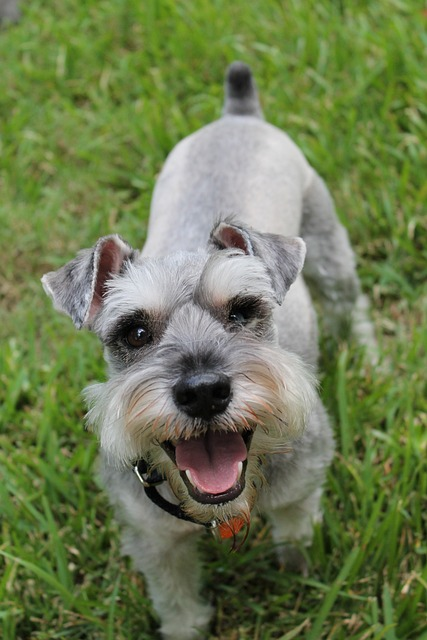
These adorable little pups are a bundle of personality! They’re friendly, clever, always alert and full of energy. They’ve got spirit, that’s for sure!
Speaking of energy, they’re lively dogs with a moderate level of it. They can adapt to various living situations, and if they exercise during the day, they’ll happily cozy up as a bit of a lap dog in the evenings. Plus, they’re eager to please, which usually makes them obedient, but their stubborn side shows occasionally. You must recognize their curiosity and intelligence. These traits sometimes lead them to mischievous adventures! Being bred as ratters, they’ve got that spunk and speed. And when it comes to personality, they’ve got it in spades! Think of them as the terriers they are – they love digging and chasing and genuinely believe they’re much bigger than they actually are.
Now, about the barking – they’ve got vocal cords and are not afraid to use them! But that means they also make excellent watchdogs, always ready to alert you to anything unusual. So, be prepared for some barking and enjoy the added security!
Are They Suitable for Families as Pets?
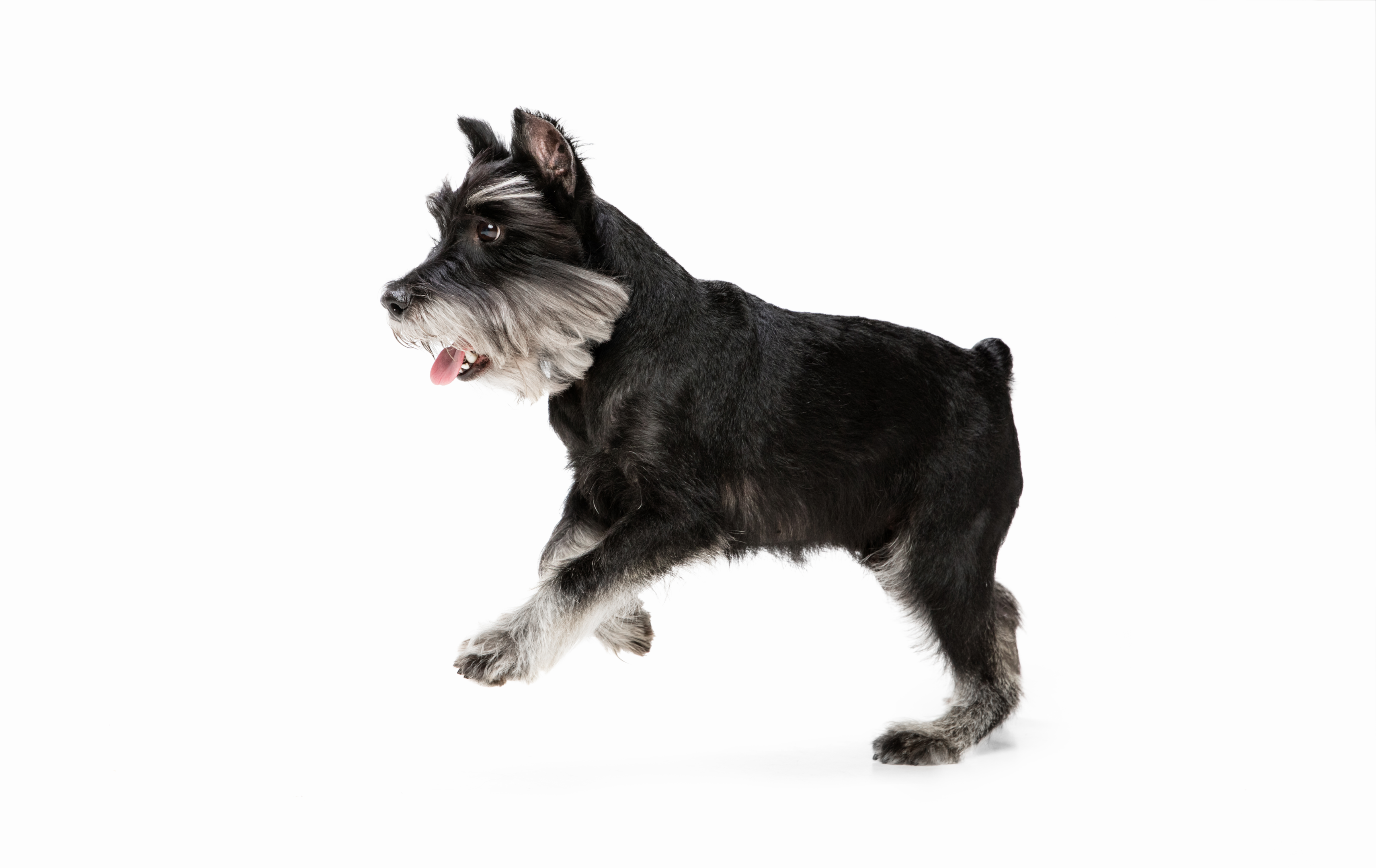
Miniature Schnauzers belong to the terrier group and are renowned for their affection, devotion, and lively nature, all of which contribute to their suitability as wonderful family companions. Their eagerness to learn makes them particularly advantageous for households with children.
Here’s Why Miniature Schnauzers Can Be Fantastic Family Pets
Child-Friendly
Miniature Schnauzers are typically gentle and enjoy hanging out and playing with children. Still, teaching kids how to interact with dogs safely and respectfully is important.
Training Ease
These puppies are quick-witted and enthusiastic about pleasing their owners, which makes training them straightforward. They remain cooperative, even if you’re new to dog ownership.
Adaptability
Miniature Schnauzers are quite versatile. Whether you live in an apartment, a house, or a farm, you can adapt well to various living situations. Plus, they don’t demand too much exercise or grooming.
Healthiness
Overall, Miniature Schnauzers are generally healthy dogs with a decent lifespan. Nonetheless, they may be susceptible to specific health conditions such as pancreatitis and diabetes, emphasizing the importance of routine veterinary examinations.
Now, like all other pets, Miniature Schnauzers have their quirks. They can sometimes be a tad stubborn and might indulge in barking. However, their positive traits usually outweigh the quirks. If you’re considering adding a Miniature Schnauzer to your family, do your homework and find a reputable breeder. Socializing your puppy early and proper training are keys to nurturing a loving and loyal companion who’ll be a part of your family for years to come.
Miniature Schnauzer Appearance
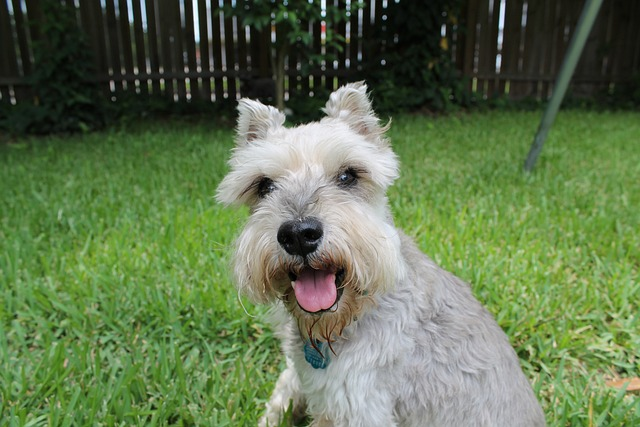
Let’s delve into the charming physical traits of Miniature Schnauzers! These small but sturdy dogs boast a distinctive appearance, including a double coat and a wiry coat texture in classic colors like salt and pepper, black, and black and silver. And according to the American Miniature Schnauzer Club (AMSC). Their long beards gave the breed its name: Schnauze is the German word for muzzle.
Body and Coat
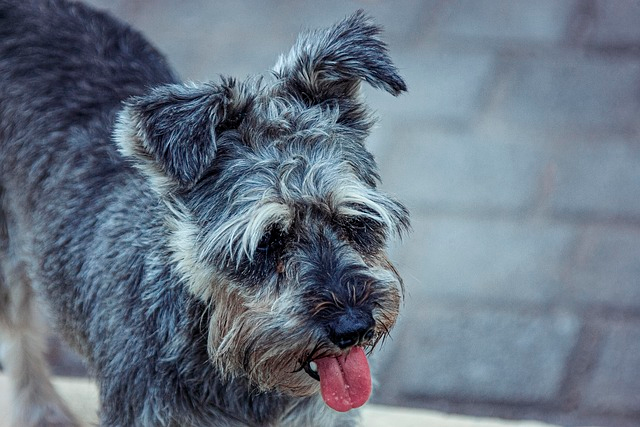
Miniature Schnauzers are square-shaped, with a medium-length wiry coat in classic colors like pepper black and silver. Their double coat consists of a soft underlayer and a wiry topcoat, adding to their unique look.
Ears
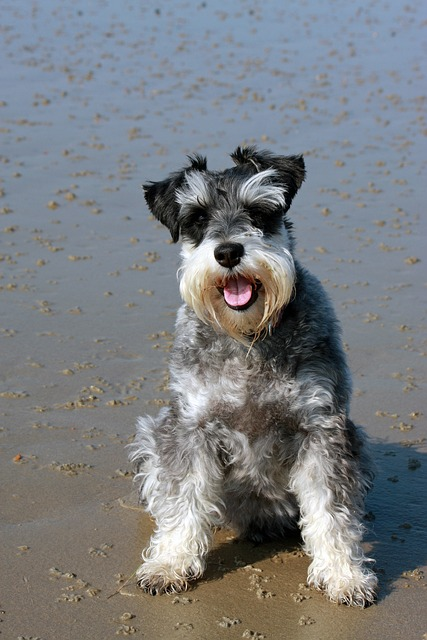
These pups have naturally folded-over ears, but it’s worth noting that in show dogs, they’re often cropped for a more pointed, erect appearance. When left uncropped, Miniature Schnauzer ears are small and V-shaped, neatly folding close to the skull.
Coat Details
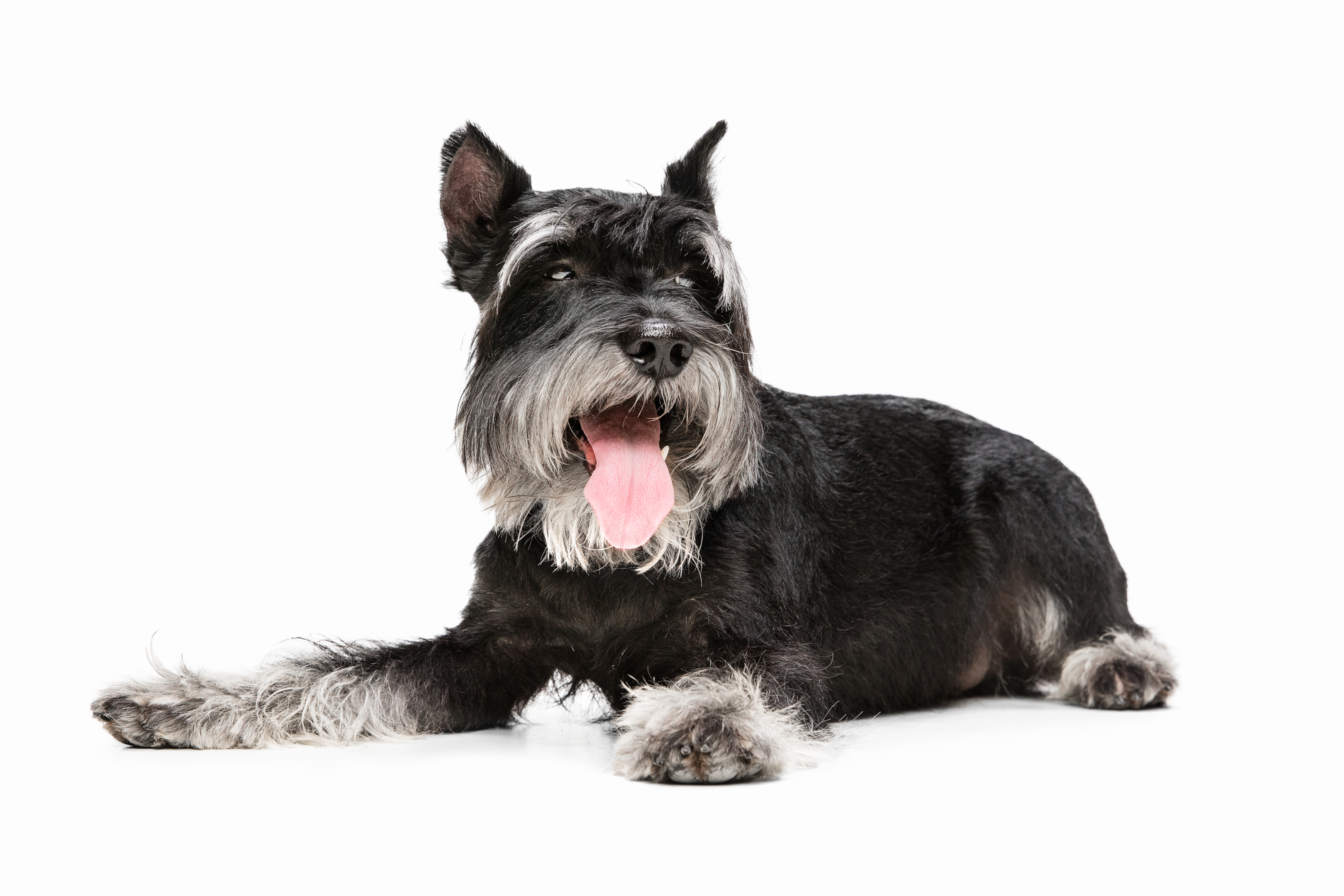
When it comes to their soft undercoat, it’s worth noting that while the length can differ, it generally falls into the medium range. Many pet parents trim or hand-strip their wiry coat to maintain its appearance.
Miniature Schnauzer Grooming
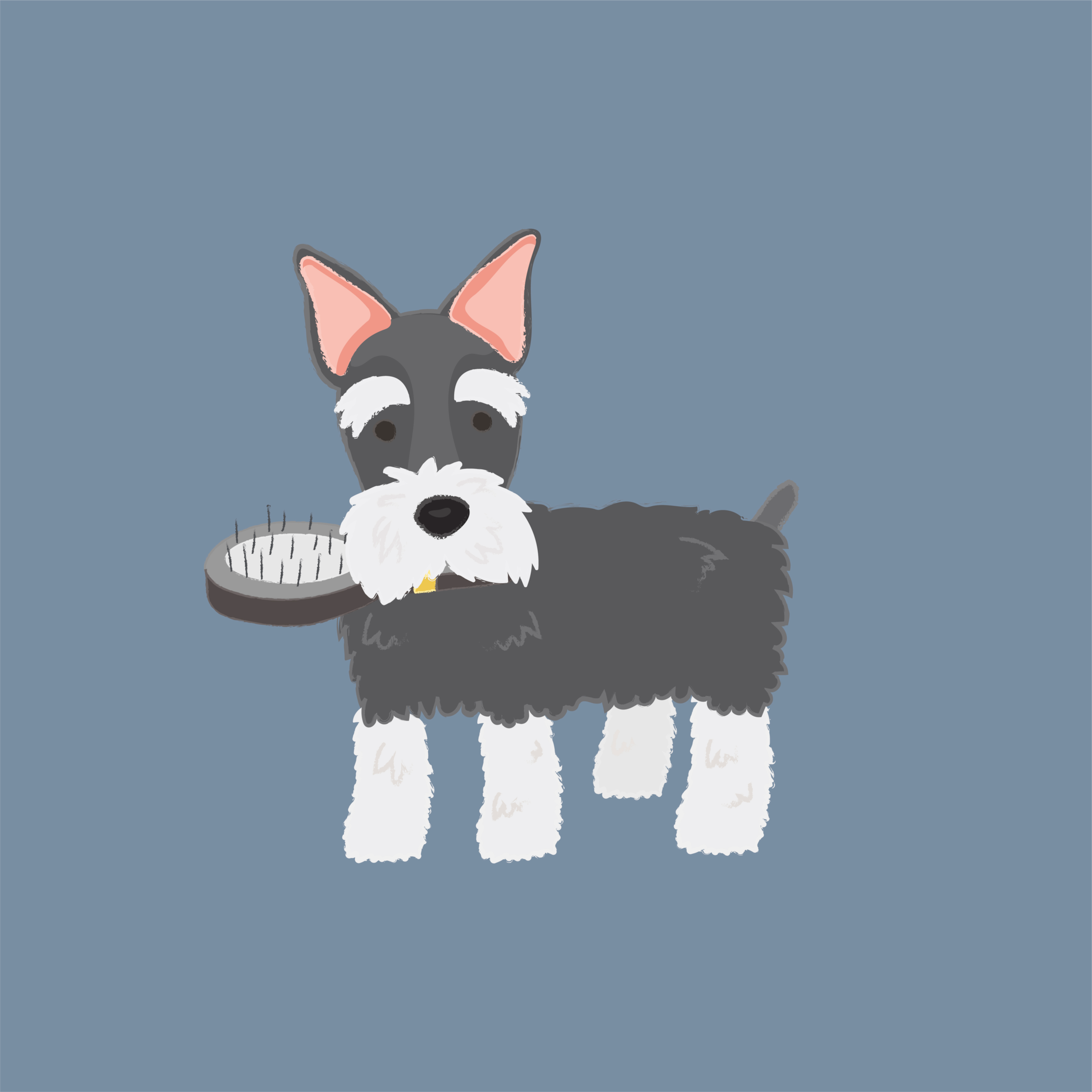
Regular Grooming your Miniature Schnauzer is essential to keeping them healthy and comfortable. Here are some easy-to-follow grooming tips to help your furry friend look and feel their best.
Brushing
Miniature Schnauzers should be brushed at least twice a week and even more often if they have longer hair. A slicker brush works great for removing loose hair and those sneaky mats and tangles. Remember a gentle comb to detangle any knots you may find.
Bathing
Aim to bathe your Schnauzer every 4-6 weeks, or sooner if they’ve had a muddy adventure. Use a mild dog shampoo specifically made for their coat type. Rinse thoroughly and ensure your pup is completely dry before they dash off to play again.
Professional Help
If you need more confidence in your grooming skills, consider taking your Miniature Schnauzer to a professional groomer every 4-6 weeks. They’ll have the expertise to keep your pup looking sharp.
Nails, Ears, and Teeth
Regular maintenance is key. Trim your dog’s nails every 2-3 weeks using dog-specific clippers. Clean their ears weekly with a gentle wipe using a cotton ball or soft cloth. Brushing their teeth with dog toothbrush and toothpaste designed for dogs 2-3 times a week will help keep their smile fresh.
A Few More Coat-specific Tips
To prevent any discomfort, be sure to brush in the same direction as the hair growth. If you encounter a persistent tangle, make an effort to delicately untangle it using either your fingers or a comb. You might need to snip it out with scissors if it won’t budge. Avoid over-brushing, as this can harm their coat. After bathing, ensure your Miniature Schnauzer is thoroughly dried with a towel or blow dryer.
By following these grooming practices, your Miniature Schnauzer will flaunt a healthy, shiny coat that you’ll love to pet, and they’ll appreciate the extra attention!
Health Concern
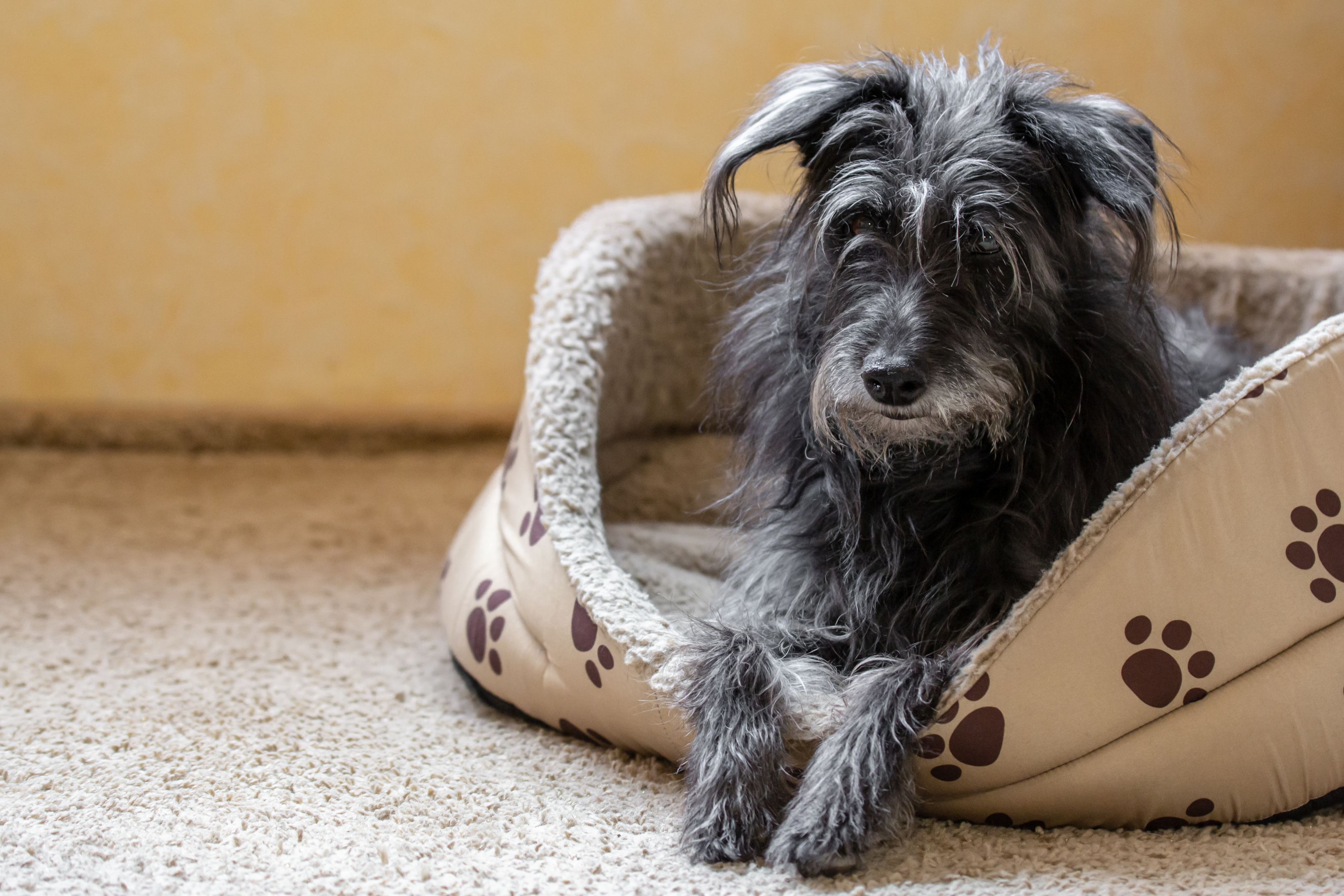
Keeping your Miniature Schnauzer in tip-top shape is essential for their well-being. Although they are typically a robust breed, it’s important to be aware of a few health concerns they might be susceptible to:
Pancreatitis
This condition causes pancreas inflammation and can be triggered by factors like dietary slip-ups, infections, or specific medications. Watch out for signs like tummy pain, vomiting, diarrhea, and low energy levels.
Diabetes
Some Miniature Schnauzers might develop diabetes, a chronic condition where their body either doesn’t produce enough insulin or their cells don’t respond well. Look for increased thirst, frequent urination, weight loss, and sluggishness.
Liver Shunts
These congenital disabilities allow blood to bypass the liver, potentially leading to symptoms like vomiting, diarrhea, jaundice, or even seizures.
Bladder or Kidney Stones
Miniature Schnauzers have a higher risk of developing stones in their urinary tract. Look for signs like blood in their urine, trouble urinating, or abdominal discomfort.
Skin Troubles
They may have a tendency to develop skin allergies and conditions such as atopy and seborrhea. If you notice your pup scratching, itching, or experiencing hair loss, it’s worth looking into the matter.
Regular checkups at the vet are crucial to screen for these issues and keep your Miniature Schnauzer in the best health possible.
Identifying and addressing issues at an early stage can have a profound impact on both their quality of life and their overall lifespan.
Here Are Some Practical Tips to Keep Your Miniature Schnauzer Healthy
Here are some tips to keep your miniature schnauzer dog healthy
- Nutrition Matters: Provide your four-legged companion with premium dog food appropriate for their age and level of activity. Be cautious about overfeeding to prevent the risk of obesity.
- Stay Active: Regular exercise keeps them in great shape and helps with their mental stimulation.
- Grooming TLC: Brush their coat regularly to prevent mats and tangles.
- Vet Visits: Make sure to schedule regular checkups and vaccinations with your veterinarian.
Following these tips and staying vigilant about their health will help your Miniature Schnauzer enjoy a long and healthy life.
Training and Exercise
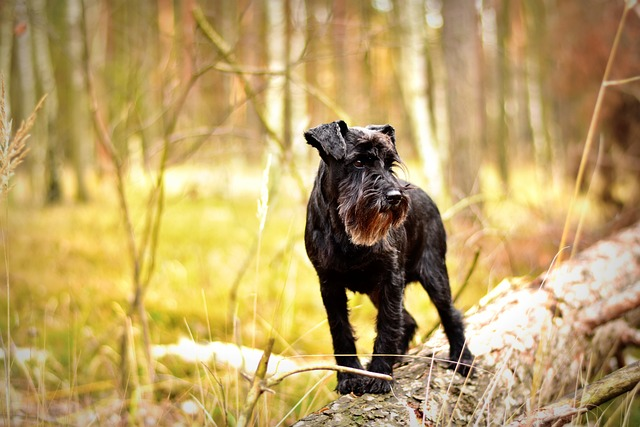
Training your Miniature Schnauzer is a smart move. These little guys have active minds, and they thrive on mental stimulation. Plus, they’re known to be food enthusiasts, which makes training a breeze. However, keep the training sessions short and sweet; they can get a tad bored with too much repetition.
When it comes to curbing barking, it might not vanish entirely, but you can tone it down with consistent training. These lively Miniature Schnauzers often enjoy the challenge of agility training, so consider giving it a shot!
Don’t let their smaller size fool you; these pups need exercise, too! It’s essential for their overall health, both physically and mentally. Their clever and active nature means they benefit greatly from regular activity. So, keep those tails wagging with some fun and engaging exercise routines!
Here’s a informational video if you want to welcome these breed to your family
Miniature Schnauzer: The Pros & Cons of Owning One : By: Animal Insider
Conclusion
Embracing a Miniature Schnauzer into your household marks the beginning of a heartwarming journey filled with love, happiness, and lasting companionship. So, if you’re considering adding one of these wonderful dogs to your family, arm yourself with knowledge, find a reputable breeder, socialize and train your pup early, and provide them with the care and attention they deserve. You’ll enjoy a lasting and fulfilling relationship with your miniature Schnauzer for many years with these efforts.
FAQs
Are Miniature Schnauzers OK to Be Left Alone?
Miniature Schnauzers can be left alone for some time, depending on their age, training, and exercise needs. Puppies need more attention and should be supervised for a short time. Adult Schnauzers can handle about 4-6 hours alone, but they should be exercised and mentally stimulated before you leave. They enjoy companionship, so consider getting another pet or using a pet sitter if you’ll be away for a while. Remember to provide toys and mental stimulation to keep them happy when you’re not around.
Do Schnauzers Pick One Person?
Schnauzers, including Miniature Schnauzers, don’t typically pick just one person as their favorite. However, individual dogs may form stronger bonds with specific family members based on their interactions, care, and shared experiences. Dogs often connect closely with the person who feeds them, spends the most time with them, or engages in play and training activities. It’s important to note that dogs are social animals and can develop attachments to multiple family members.
? Embark on an Adventure in the Pet Lover’s Paradise! ?
Dive into a world of furry friends and fantastic finds by connecting with us on social media! Immerse yourself in captivating content, insightful product reviews, and become a part of a vibrant community.
?Instagram: lifewithmydogs2 Follow us on Instagram for an overflow of heartwarming snapshots and exciting pet escapades!
?Pinterest:lifewithmydogs2 Explore a treasure trove of pet inspiration and ideas on Pinterest, where each pin leads you to a realm of creative possibilities!
? Facebook: 1LWMD Like us on Facebook to keep your finger on the pulse of all things pets – from heartwarming stories to the latest pet gear trends!
? Twitter: LifeWithMyDogs9 Join the conversation on Twitter, where you can chirp away about the newest pet happenings and stay ahead of the pack with the latest pet trends!
Unleash your furry friend’s paradise with us – join our pack today! ??
